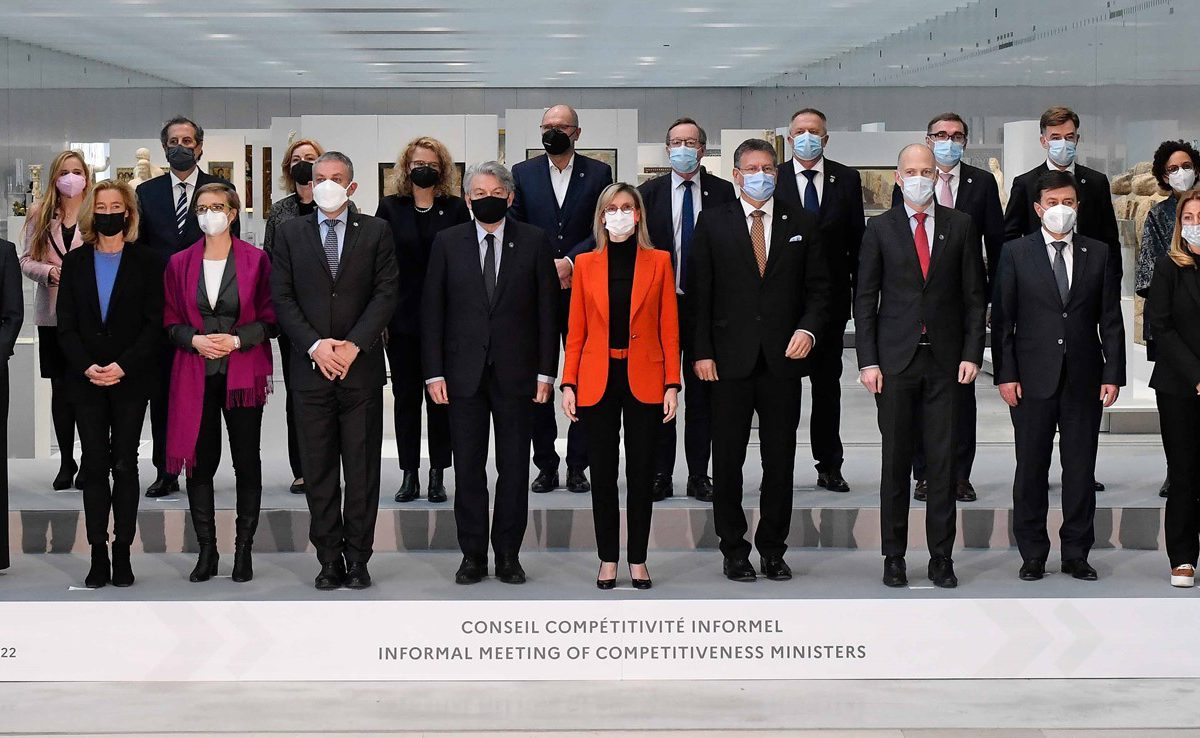
On 31 January and 1 February 2022, the French Presidency of the Council of the European Union held a meeting of the 27 EU ministers responsible for industry and the internal market in Lens, to discuss strengthening European strategic autonomy. The ministers notably highlighted the importance of securing our supply, both internal and external, of raw materials that are critical to European industry.
In the short term, supply problems impact production conditions, schedules and costs, while also putting a drag on Europe’s competitiveness and putting at stake businesses and jobs. In the long term, they pose a threat to our ability to green and digitalise our economy, respond to crises and develop sectors key to the future, including renewable energy, electric mobility, healthcare, and cloud and 5G infrastructure.
Strengthening European Strategic Autonomy by Reducing our Vulnerabilities:
The public health crisis has highlighted a certain number of our supply chain vulnerabilities. These dependencies affect the conditions of production and weigh on the longevity of businesses and jobs. With these issues in mind, the European Commission identified a list of 137 products on which the EU is highly dependent, in its May 2021 update of the European Industrial Strategy. This list notably covers the sectors of health, defence, raw materials and technologies at the heart of the green and digital transitions.
The Member States agreed with the European Commission’s diagnosis of our vulnerabilities and pointed out that even as we retain the benefits of our open economy, we must also urgently take action to restore European strategic autonomy and its capacity to respond to crises. One such actions taken since March 2020 to meet our current and future needs, is the launch of joint industrial projects at European level: the Important Projects of Common European Interest (IPCEI) for electric car batteries, microelectronics and the new pending projects in the key sectors of electronics and connectivity, the Cloud, hydrogen and health.
Securing our supply of raw materials and their sustainability:
- The ministers agreed on the need to take urgent action towards securing our supply of raw materials. Europe has significant mineral resources and expertise, but at the same time can find itself dependent on key raw materials, in the short term, to continue to produce objects necessary for daily life, and in the long term, to be able to achieve its dual green and digital transition.
- The ministers emphasised the need to secure extra-European supply sources for raw materials, debating the strategic partnerships formed with third countries (Ukraine, Canada) and the possibility of developing strategic storage policies, or even creating structures invested in securing raw materials such as JOGMEC in Japan.
- The ministers also promoted the contribution that the circular economy and innovation could make to reducing our dependencies, as the circular economy is one of the tools available to us to increase our resilience. However, it still requires significant investments to be made in research, recycling and the sustainable use of materials.
- Lastly, the ministers underscored the need to strengthen our domestic capacities to produce raw materials and discussed the proposals brought forward by stakeholders for this goal, such as implementing an IPCEI for the sector. The imperative of improving the sustainability of our supply chains was a common thread throughout the discussions; the ministers agreed that the social acceptability of domestic projects for raw materials, in particular, must be strengthened.
The Commission highlighted the actions undertaken since the summer of 2020 with regard to raw materials, in particular the publication of a dedicated Action Plan in September 2020 and the establishment of the European Raw Materials Alliance, comprising 600 European stakeholders. The Alliance produced an action plan to secure access to rare earth elements, which identifies for example European projects that could enable 20% of our domestic needs for raw materials to be covered by 2030. The Commission also recently launch a high-level working group on magnesium, a key raw material in numerous industrial ecosystems such as the automotive industry, with the goal of ensuring 15% of global production takes place in Europe by 2030.
The participants agreed to consider means of funding for securing the supply of critical raw materials. In addition, the Commission mentioned the new European Battery Alliance initiative which aims to establish an investment fund for securing access to materials for sustainable batteries to the value of €400 million.
These considerations build upon the work of the Commission on updating the European industrial strategy as well as the work of the European Parliament, and in particular the report by MEP Hildegard Bentele. They will inform discussion during the summit of heads of state or government scheduled for March 2022.
“Our industries still remain too reliant upon supply chains outside of Europe for critical metals. As these resources are limited and global competition is fierce, this is a key time to secure our supply of mineral resources that are vital to achieving carbon neutrality by 2050. Today’s discussions were testament to the fact that we must together activate all the mechanisms at our disposal to secure our supply from outside of the EU, to better consume and recycle raw materials and, where possible, extract these materials in Europe. There are several challenges we must meet, namely to equip ourselves with means that match our ambitions. The contributions of the Commission, the Parliament and the report of Philippe Varin provide us with clear possibilities. Today’s announcements are a significant first step and one that I warmly welcome.”
— Agnès Pannier-Runacher, Minister Delegate for Industry, attached to the Minister of the Economy, Finance and the Recovery.
